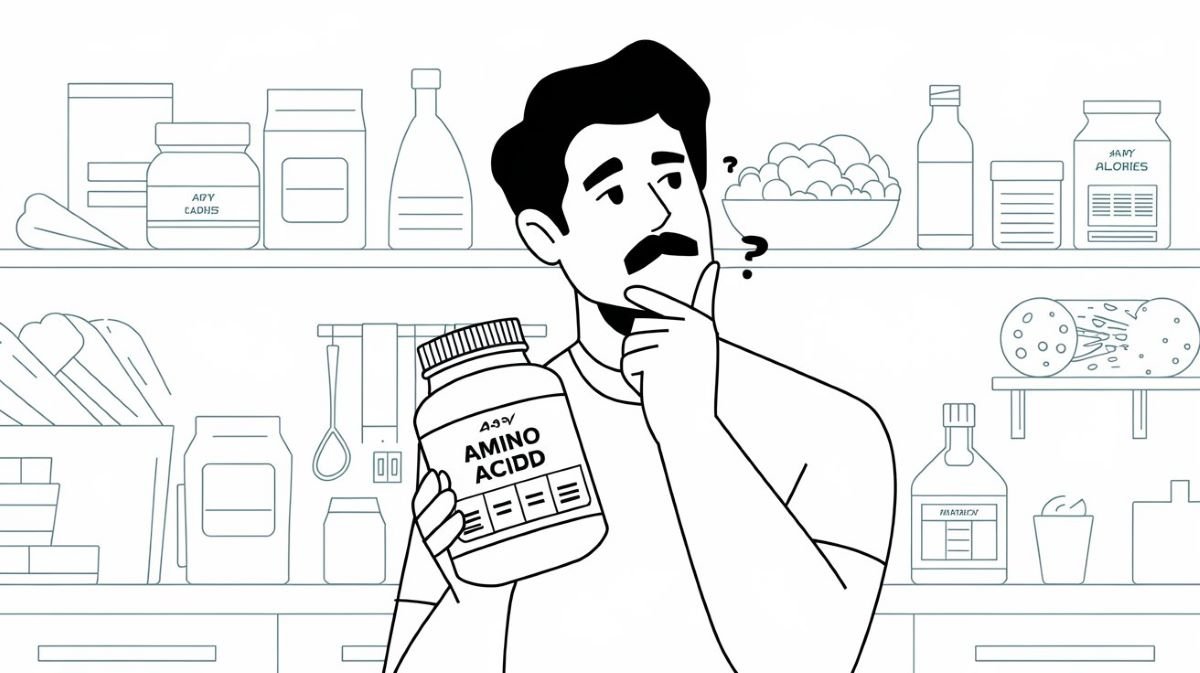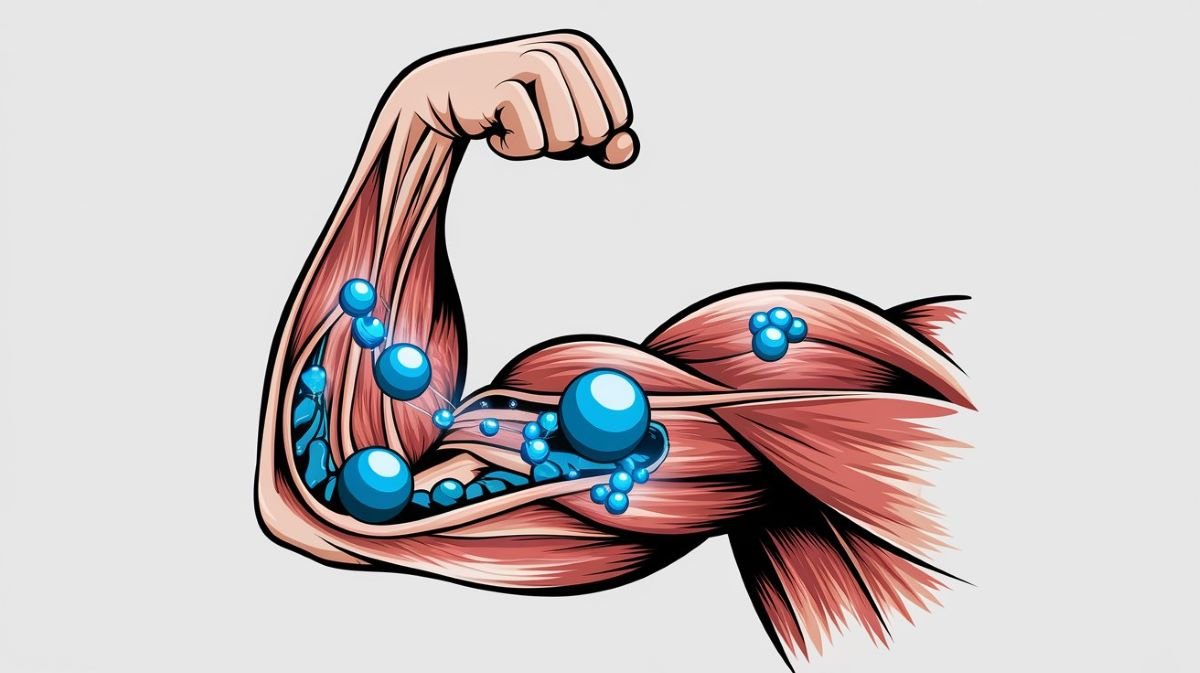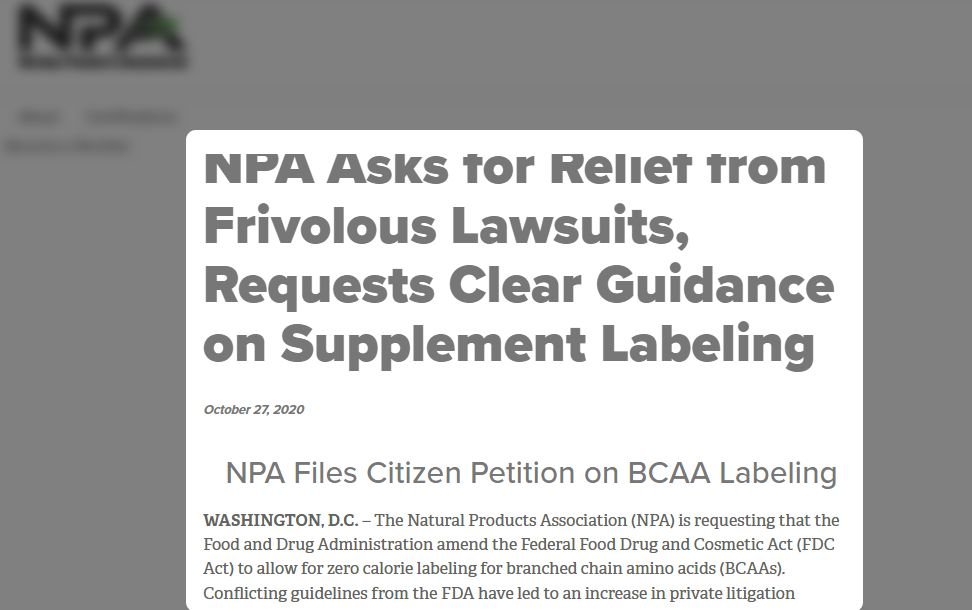Do BCAAs Have Calories? Short Answer: YES
If you're wondering whether BCAAs contain calories, the short answer is yes. Read on to understand why.

BCAAs do contain calories, about 4.65 per gram, despite some labels claiming zero due to FDA regulations.
These calories can add up, especially if you’re watching your intake or fasting. Don’t be misled by packaging; those calories count towards your daily total and could impact your diet or fast.
As for the labeling “confusion”, clearer guidelines are needed. For now, savvy label-reading is your best bet. And while BCAAs have their place, whole protein sources might serve you better.
What Are BCAAs?
BCAAs stand for Branched-Chain Amino Acids – they’re essential building blocks of protein that your body needs to grow and repair muscles.
There are three main types: leucine, isoleucine, and valine.
Now, BCAAs are important because your body can’t produce them on its own. You have to get them from food or supplements. They help reduce muscle soreness after exercise, which means you can recover more quickly and feel less discomfort.
You can find BCAAs in protein-rich foods like meat, eggs, dairy products, and even some plant-based foods like beans and lentils. If you are vegan or vegetarian, this article on the Importance of Amino Acids For Vegans And Vegetarians is a must read.
Anyways, when you exercise, your muscles develop tiny tears. BCAAs assist in repairing these tears, making your muscles stronger in the process.

So, if you’re an athlete, bodybuilder, or someone who exercises frequently, you might want to consider taking BCAAs. They can help enhance your performance and reduce fatigue during workouts.
Generally, BCAAs are safe for most people when taken in the appropriate amounts. However, consuming too much can lead to issues like stomach upset or fatigue.
Do BCAAs have calories?
Do BCAAs have calories? Yes, they do! Let’s break it down.
BCAAs are made up of three essential amino acids: leucine, isoleucine, and valine. According to the American Journal of Clinical Nutrition, each of these has calories, roughly around 4.65 calories per gram.
So, if you’re taking a standard 2:1:1 ratio of these amino acids, one gram of BCAAs will give you about 4.65 calories.
What does this mean for you? Well, if you consume 10 grams of BCAAs, that’s around 46.5 calories you’re taking in.
It’s good to keep this in mind when you’re watching your calorie intake. Knowing the calories in your BCAA supplement can help you make better choices for your nutrition plan.
So, why do some BCAA supplements say they’ve 0 calories on their label?
Well, it’s a bit tricky. You see, the rules set by the FDA (Updated March 2024) allow certain flexibility in labeling that can lead BCAA (Branched-Chain Amino Acid) supplements to list 0 calories. Here’s how it works:
- Rounding Rules: The FDA allows companies to round down calories to zero if there are less than 5 calories per serving. BCAAs do have calories—around 4.65 calories per gram—but if the serving size is small enough, the total calories can be less than 5.
- Small Serving Sizes: Many BCAA supplements use small serving sizes, which means the actual calories per serving might not be enough to require a calorie listing.
- Focus on Ingredients: These supplements emphasize the amino acids they provide. The calorie count might not be highlighted as much because it’s minimal.

So, even though BCAAs have some calories, the rules allow companies to list them as zero when the amounts are very small.
What This Means For You?
If you’re thinking about including BCAAs in your diet, remember that they do have calories, so, you’ll need to count these calories as part of your daily intake, just like you’d with anything else you eat or drink.
If you’re aiming to shed some pounds, make sure the calories from BCAAs fit into your daily calorie allowance.
If you’re doing intermittent fasting, keep in mind that taking BCAAs will actually break your fast because they contain calories. So, it’s a good idea to steer clear of them during your fasting period.
As for having BCAAs before a workout on an empty stomach, you don’t really need to stress about losing muscle unless your exercise is super intense.
Plus, if you have BCAAs before your workout, you’re not really doing fasted cardio anymore since you’re getting some calories in.
Isn’t This Going to Change?
You know, it’s really interesting how the rules about labeling supplements, especially BCAAs, are a bit up in the air right now.
The Natural Products Association is asking the FDA to make things clearer, but who knows when or if that will happen.

The problem is that the FDA hasn’t said exactly how to label BCAAs, which do have a tiny bit of calories. This can lead to lawsuits that aren’t really fair, and it can hurt businesses that are trying their best to follow the rules.
The NPA thinks that if the FDA makes the rules clearer, it won’t just help the companies but also people like you and me. If we know exactly what’s in the supplements we’re buying, we can make better choices for our health.
But until things change, it’s really important for all of us to pay attention and read labels carefully. Just because something says it has zero calories, that doesn’t mean it’s completely calorie-free.
I always recommend reading everything closely and even asking the company if you’re not sure. After all, your health is what’s most important.
Are BCAA’s A Waste of Money?
Now that we cleared whether BCAA’s have calories or not, let’s talk about another hot topic – if they’re a waste of money or not.
BCAAs are praised for their ability to help preserve muscle and enhance workout performance. However, when you take a closer look at the evidence, it seems that BCAAs mightn’t be the best use of your money.
The thing is, while BCAAs are said to stimulate protein synthesis and improve your workouts, recent studies have shown that they don’t really offer any unique benefits compared to regular protein sources.
In fact, they contain calories and can even interfere with fasting efforts by triggering an insulin response.
So, unless you’re having trouble getting enough protein in your diet, you’re probably better off sticking to whole food sources and traditional protein powders that contain all nine essential amino acids.
I know BCAAs might seem like a convenient way to support your fitness goals, but the reality is that they’re likely a waste of money for most people.
Instead, focus on getting your protein from a variety of sources, and save your money for other supplements that have been proven to work.
Frequently Asked Questions
Conclusion
BCAAs do contain calories, despite some supplement labels claiming otherwise. This discrepancy is due to outdated labeling laws, which are likely to change in the future.
While BCAAs can be a useful supplement for muscle growth and recovery, it’s essential to account for their calorie content, especially if you’re following a strict diet.
As with any supplement, the benefits of BCAAs depend on your individual goals and overall nutrition and training plan.
Check Also
